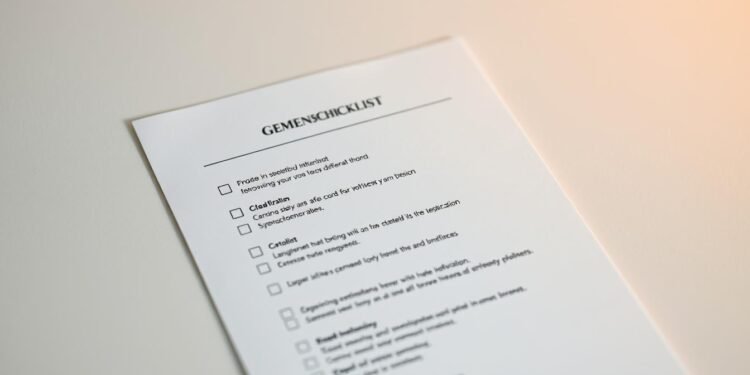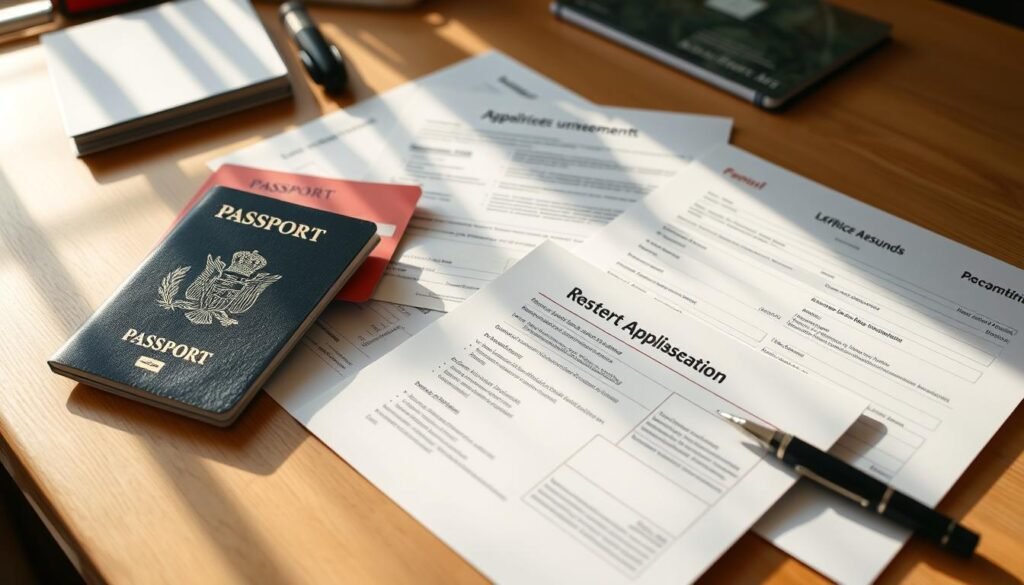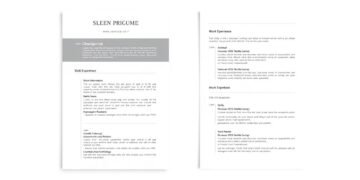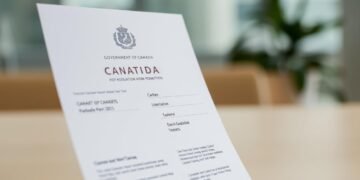Embarking on an academic adventure in a new country is exciting, but it also requires careful planning. Have you ever wondered how to ensure a smooth transition while relocating to Germany for your education? The key lies in meticulous preparation, especially when it comes to organizing essential paperwork.
Proper documentation is not just about meeting requirements—it’s about reducing stress and ensuring a seamless experience. From visa applications to university enrollment, having a well-structured plan can make all the difference. Additionally, securing digital backups and safeguarding physical copies are steps you can’t afford to overlook.
This guide will walk you through the critical aspects of preparing for your academic journey. Whether it’s understanding the importance of organization or learning how to protect your paperwork, we’ve got you covered. Stay tuned for a detailed breakdown of what you’ll need to succeed.
Key Takeaways
- Proper organization of paperwork is crucial for a stress-free relocation.
- Digital backups and physical document security are essential steps.
- Understanding visa and university requirements saves time and effort.
- A comprehensive checklist ensures you don’t miss any critical items.
- Preparation directly impacts your overall academic experience.
Introduction to Studying in Germany
Germany offers a unique blend of academic excellence and cultural richness, making it a top choice for learners worldwide. As an international student, you’ll find a welcoming environment and endless opportunities to grow both academically and personally.
The country is known for its world-class universities and innovative research facilities. Whether you’re in Hamburg or Munich, each region has its own charm and distinct climate. The north tends to be rainy, while the south often experiences snowy winters. Packing accordingly can make your stay more comfortable.
Understanding local transportation systems is crucial for navigating daily life. Germany’s efficient public transit makes travel easy and affordable. From buses to trains, you’ll find it simple to explore your new surroundings.
After arriving, you’ll need to complete document verification processes. This step ensures you’re ready to begin your academic journey without delays. With over 400,000 international students in Germany, you’ll be part of a diverse and vibrant community.
Preparing for your time in this country involves more than just packing your bags. It’s about embracing a new culture, adapting to regional differences, and making the most of every opportunity. Germany is more than a destination—it’s an experience that will shape your future.
Essential Documents for Your Application
Organizing your essential paperwork is the first step toward a successful academic journey. Ensuring you have the right important documents can save you time and stress during the application process. From your passport to financial proof, each piece plays a critical role in your relocation.
Passport and Visa Requirements
Your passport is the most important document you’ll need. Ensure it’s valid for at least six months beyond your intended stay. The U.S. passport application process involves six steps, including submitting proof of citizenship and a photo ID.
For your visa, you’ll need supporting documents like bank statements and proof of health insurance. The financial threshold for a student visa is €11,208 per year, which you can prove through a blocked account setup.
University Admission Letter
Your university admission letter confirms your acceptance into a program. This document is essential for both your visa application and enrollment. Ensure it includes your full name, program details, and start date.
If your letter is in a language other than English, you’ll need a notarized translation. This step ensures there are no misunderstandings during the verification process.
Proof of Financial Resources
Proof of financial stability is a key requirement for your visa. You can demonstrate this through a blocked account, which locks the required funds until your arrival. This account ensures you have the means to support yourself during your stay.
Additionally, keep copies of bank statements and any scholarship letters. These documents provide further evidence of your financial readiness.
Health Insurance and Medical Documents
Staying healthy while living in a new country is a top priority for any student. Proper preparation ensures you can access the care you need without unnecessary stress. From health insurance to medical records, having the right paperwork is essential.
Mandatory Health Insurance
In Germany, health insurance is mandatory for all students. You can choose between public and private options. Public providers like TK and AOK are popular for their comprehensive coverage and affordability.
Private insurance may offer more flexibility but often comes with higher costs. Compare plans carefully to find one that suits your needs. Ensure your policy meets the requirements for your student visa.
Vaccination Certificates
Certain vaccination requirements must be met before you arrive. COVID-19 and routine immunizations are often mandatory. Keep your certificate updated and easily accessible for verification.
If you’re missing any required shots, schedule them before your departure. This step ensures compliance with local health regulations and protects your well-being.
Prescriptions and Medical Records
If you take prescription medications, bring a translated copy of your prescription. EU restrictions may apply to certain controlled substances. The Apotheke pharmacy system in Germany is reliable but requires proper documentation.
Carry a summary of your medical history, including allergies and chronic conditions. This information is vital in case of emergencies. Format your emergency contact details clearly for quick reference.
Academic Documents and Certifications
Academic success starts with having the right certifications in place. Whether you’re applying as an international student or transferring credits, your documents must meet specific requirements. Proper preparation ensures a smooth enrollment process and avoids unnecessary delays.
Transcripts and Diplomas
Your academic transcripts and diplomas are essential for proving your educational background. These documents must be officially certified and, if necessary, translated into German or English. The apostille or legalization process ensures their authenticity for international use.
For students from certain countries, the APS certification is mandatory. This additional step verifies your academic credentials and is a prerequisite for enrollment. Always check with your institution to confirm specific requirements.
Language Proficiency Certificates
Language skills are crucial for academic success in Germany. Most programs require proof of proficiency through tests like TestDaF or Goethe Institut. Minimum scores vary by institution, so verify the requirements for your chosen program.
If your academic records are in another language, certified translations are necessary. This ensures clarity and compliance with university standards. For art or design programs, a portfolio may also be required to showcase your skills.
Finally, if you’re transferring credits, pre-approval procedures are essential. This step ensures your previous coursework aligns with your new program’s curriculum. Proper preparation of your academic documents sets the stage for a successful educational journey.
Travel and Accommodation Arrangements
Planning your journey to a new destination involves more than just booking a flight. Proper organization of your travel and living arrangements ensures a smooth transition. From securing your tickets to confirming your housing, every detail matters.
Flight Tickets and Itinerary
Booking your flight at the right time can save you money. Look for student discounts and optimal booking timelines to get the best deals. Ensure your travel itinerary includes all necessary details, such as layovers and arrival times.
Be aware of EU carry-on restrictions to avoid last-minute hassles. Use digital tools to manage your itinerary and keep backups of your tickets. This step ensures you’re prepared for any unexpected changes.
Accommodation Confirmation
Securing your housing is a top priority. Options like Studentenwerk provide affordable and reliable choices for students. Make sure to have your accommodation confirmation ready for the Anmeldung registration process.
Include your student card details when applying for housing. This can often grant you access to additional benefits, such as discounted rates. Plan for emergency accommodations as a backup to avoid stress.
Finally, consider transportation passes like the Semesterticket, which are often included in your housing package. These passes make it easy to navigate your new country and explore your surroundings.
Financial Preparation and Banking
Managing your finances effectively is a critical step when moving to a new country. Setting up a local bank account and understanding how to handle money abroad can save you time and stress. Proper preparation ensures you’re ready to tackle daily expenses and unexpected costs.
Opening a German Bank Account
Opening a bank account in Germany is straightforward with options like Sparkasse or N26. Traditional banks like Sparkasse offer in-person services, while neo-banks like N26 provide digital convenience. Both require documents such as your passport, proof of address, and student ID.
Consider the Expatrio Value Package, which includes a blocked account for visa proof and health insurance. This package simplifies the process and ensures compliance with visa requirements. Be aware of activation and maintenance fees when choosing your account.
Managing Finances Abroad
Using a credit card or EC card is common in Germany. EC cards are widely accepted and linked directly to your bank account. For international transfers, compare fees and use cost-saving strategies like Wise or Revolut.
Set up a power of attorney for your home accounts to manage them remotely. This ensures you can handle financial matters even while abroad. Additionally, research currency conversion best practices to avoid unnecessary losses.
With the right preparation, you can focus on your new adventure without financial worries. A solid plan ensures you’re ready for any situation.
Packing Essentials for Germany
Efficient packing can make your transition to a new country smoother and stress-free. A well-thought-out packing list ensures you’re prepared for variable climates and daily needs. From clothing to electronics, every item you bring should serve a purpose and save space in your luggage.
Clothing for Different Seasons
Germany’s weather can change dramatically between seasons. Layering is your best strategy to stay comfortable. Pack lightweight, breathable fabrics for summer and warm, insulated items for winter. Don’t forget a waterproof jacket and sturdy shoes for rainy days.
If you’re unsure about what to bring, local stores like Zalando and C&A offer affordable options. Comparing prices at Primark and H&M can also help you save space by purchasing essentials after arrival.
Essential Electronics and Adapters
Germany uses a 230V voltage system with Type F plugs. Ensure your devices are compatible or bring a universal adapter. Avoid packing 110V appliances, as they won’t work without a converter.
Vacuum packing bulky items like jackets or blankets can save space in your suitcase. This technique is especially useful if you’re bringing a lot of winter gear. Always double-check airline baggage restrictions to avoid surprises.
With the right preparation, your packing list will be efficient and practical. Taking care of these details ensures you’re ready for your new adventure.
Cultural and Practical Tips for Students
Adapting to a new culture and lifestyle can be both exciting and challenging. Understanding local customs and practical norms will help you settle in smoothly. From punctuality to recycling, these useful tips will make your experience more enjoyable.
Understanding German Culture
Germans value punctuality, so always arrive on time for appointments or meetings. Recycling is a big part of daily life, and the Pfand system encourages returning bottles for a refund. Familiarize yourself with these practices to avoid misunderstandings.
Regional dialects can vary, so prepare for differences in language. Resources like language apps or local family connections can help you adapt. Embrace the culture by participating in local events and traditions.
Navigating Public Transportation
Germany’s public transportation system is efficient and reliable. The DB Navigator app is a must-have for planning routes and checking schedules. It covers trains, buses, and trams, making it easy to explore your city or place of residence.
The Semesterticket offers unlimited travel within specific areas, often included in your student fees. This is a cost-effective way to commute and explore. Always keep your ticket handy, as random checks are common.
For emergencies, save local contact numbers like 112 for medical assistance and 110 for police. These services are quick and reliable. Additionally, consider getting an ISIC card for student discounts on travel, museums, and more.
Conclusion
As you prepare for your journey, a final review of your essentials ensures a smooth start. Double-check your checklist to confirm all items are in place. This includes verifying your health insurance coverage and ensuring your international student card is ready for use.
Consider storing digital copies of your paperwork on platforms like Google Drive or a physical USB. This backup ensures you can access your information anytime. Participating in orientation week is highly recommended. It’s a great way to meet peers and familiarize yourself with your new environment.
Engaging with alumni networks can provide valuable insights and support. Lastly, set reminders for renewing important permits to avoid any disruptions. With these steps, you’re well-prepared for a successful experience.
FAQ
What documents do I need for a German student visa?
You’ll need a valid passport, an admission letter from a German university, proof of financial resources, health insurance, and a completed visa application form. Double-check with the German embassy for specific requirements.
Is health insurance mandatory for international students in Germany?
Yes, health insurance is mandatory. You can choose between public or private insurance. Public insurance is often recommended for its comprehensive coverage and affordability.
Do I need vaccination certificates to study in Germany?
While not always mandatory, having updated vaccination records, especially for diseases like measles, is advisable. Check with your doctor before traveling.
How can I prove my financial resources for a German visa?
You can show proof through a blocked bank account with at least €11,208, a scholarship letter, or a financial guarantee from a sponsor. Ensure the documents are recent and valid.
What academic documents are required for university applications?
You’ll need certified copies of your transcripts, diplomas, and language proficiency certificates like TOEFL or IELTS. Some programs may require additional documents.
Should I open a German bank account as an international student?
Yes, opening a local bank account makes managing finances easier. You’ll need your passport, visa, and proof of address to set one up.
What should I pack for Germany’s weather?
Pack layers for cold winters and light clothing for summers. Don’t forget waterproof shoes and a sturdy jacket for rainy days.
Are power adapters necessary for electronics in Germany?
Yes, Germany uses Type C and F plugs with 230V voltage. Bring adapters for your devices to avoid compatibility issues.
How do I navigate public transportation in Germany?
Germany has an efficient public transport system. Get a student travel pass for discounts and download apps like DB Navigator for schedules and routes.
What cultural tips should I know before moving to Germany?
Germans value punctuality, direct communication, and recycling. Learning basic German phrases and understanding local customs will help you adapt quickly.







